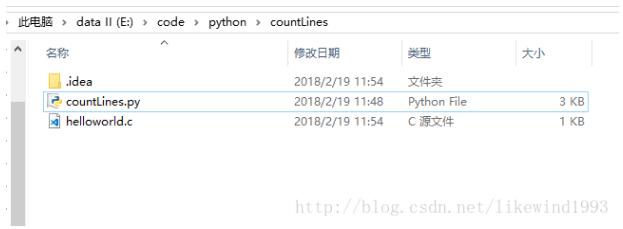python实现遍历文件夹修改文件后缀
本文实例为大家分享了python实现遍历文件夹修改文件后缀的具体代码,供大家参考,具体内容如下
用法 python Modifer.py ./ -fp java xml
# coding:utf-8
# Build by LandGrey 2016-05-27
import os
import sys
#批量修改路径与文件名
def Modifyprefix(Path,oldcontent,newcontent):
all_file_list = os.listdir(Path) #列出指定目录下的所有文件
for file_name in all_file_list:
currentdir =os.path.join(Path, file_name) #连接指定的路径和文件名or文件夹名字
if os.path.isdir(currentdir): #如果当前路径是文件夹,则跳过
Modifyprefix(currentdir,oldcontent,newcontent)
fname = os.path.splitext(file_name)[0] #分解出当前的文件路径名字
ftype = os.path.splitext(file_name)[1] #分解出当前的文件扩展名
if oldcontent in fname:
fdcount[0]+=1
replname =fname.replace(oldcontent,newcontent) #将原文件名中的'oldcontent'字符串内容全替换为'newcontent'字符串内容
newname = os.path.join(Path,replname+ftype) #文件路径与新的文件名字+原来的扩展名
os.rename(currentdir,newname) #重命名
#批量修改文件扩展名(后缀)
def Modifypostfix(Path,oldftype,newftype):
all_file_list = os.listdir(Path) #列出指定目录下的所有文件
for file_name in all_file_list:
currentdir =os.path.join(Path,file_name)
if os.path.isdir(currentdir): #迭代
Modifypostfix(currentdir,oldftype,newftype)
fname = os.path.splitext(file_name)[0]
ftype = os.path.splitext(file_name)[1]
if oldftype in ftype[1:]: #找到需要修改的扩展名
typecount[0]+=1
ftype=ftype.replace(oldftype,newftype)
newname = os.path.join(Path,fname+ftype) #文件路径与原来的文件名字+新的扩展名
os.rename(currentdir,newname) #重命名
def Useage():
print unicode("\n[+] 用法: python Modifer.py [指定目录] [选项] [参数1] [参数2]","utf-8")
print unicode("[+] 选项 [-fd] :批量修改目录和文件名 [参数1]: 需要替换的字符 [参数2]:替换字符串","utf-8")
print unicode("[+] 选项 [-fp] :批量修改文件后缀名 [参数1]: 原后缀名 [参数2]:需要替换的后缀名","utf-8")
print unicode("[+] 选项 [-all] :批量修改目录、文件名和文件后缀名 [参数1]: 需要替换的字符部分 [参数2]:替换字符串","utf-8")
print unicode(r"[+] 用法示例:python Modifer.py D:\files -fp txt data","utf-8")
if __name__=="__main__":
typecount=[0]
fdcount=[0]
if len(sys.argv)==2 and "-h" in sys.argv[1]:
Useage()
sys.exit()
elif len(sys.argv) !=5:
print unicode("\n[+] 参数错误 !\n","utf-8")
print unicode("[+] 用 -h 或--help 参数查看Modifer.py用法","utf-8")
sys.exit()
elif os.path.isdir(sys.argv[1]) is False:
print unicode("\n[+] 指定目录错误 ! 请检查输入路径是否正确,路径中不能有空格\n","utf-8")
print unicode("[+] 用 -h 或--help 参数查看Modifer.py用法","utf-8")
sys.exit()
elif sys.argv[2]=="-fd":
Modifyprefix(sys.argv[1],sys.argv[3],sys.argv[4])
print unicode("\n[+] Modifer.py Build by LandGrey","utf-8")
print unicode("[+] 完成 !","utf-8")
print unicode("[+] 共修改%s个目录和文件名"%fdcount[0],"utf-8")
elif sys.argv[2]=="-fp":
Modifypostfix(sys.argv[1],sys.argv[3],sys.argv[4])
print unicode("\n[+] Modifer.py Build by LandGrey","utf-8")
print unicode("[+] 完成 !","utf-8")
print unicode("[+] 共修改%s个后缀名"%typecount[0],"utf-8")
elif sys.argv[2]=="-all":
Modifypostfix(sys.argv[1],sys.argv[3],sys.argv[4])
Modifyprefix(sys.argv[1],sys.argv[3],sys.argv[4])
print unicode("\n[+] Modifer.py Build by LandGrey","utf-8")
print unicode("[+] 完成 !","utf-8")
print unicode("[+] 共修改%s个目录名、文件名和后缀名"%(typecount[0]+fdcount[0]),"utf-8")
else:
print unicode("\n[+] 选项错误 !\n","utf-8")
print unicode("[+] 用 -h 或--help 参数查看Modifer.py用法","utf-8")
sys.exit()
以上就是本文的全部内容,希望对大家的学习有所帮助,也希望大家多多支持【听图阁-专注于Python设计】。

